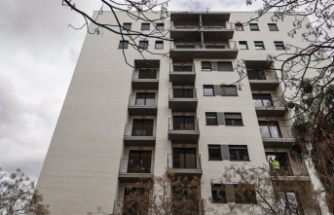The bill for the restoration and conservation of Notre-Dame of Paris authorizes derogations to the
Figarostandards of public procurement and heritage protection and proposes tax benefits for donors, a committee of control for "the good use of funds" and a public institution responsible for designing and carrying out the work.
exemptions:They are necessary, having regard to the time limits, to deviate from the rules of town planning, of highways, of the domanialité public, heritage, and the environment in order to accelerate the implementation of temporary constructions necessary to the conduct of the work. On the other hand, the period of two years to have the power to override by order seems to be very long, especially if the project is to be finished in five years. Why two years and not six months?
donations:donations to Our Lady will be able to take a deduction outstanding temporary and 75% in the limit of 1000 euros. They will be collected by the collectors, determined by the law (including the Fondation de France, the Fondation Notre Dame, the heritage Foundation, the Centre for national monuments, etc.). The pattern is simple and clear except that a third party, such platforms could also collect these donations and allow donors to enjoy tax deductions as a special condition that "the gift remains individualized in a special account within the accounting of the collection organization up to effective delivery in the hands of the final beneficiary." This point needs clarification in order to avoid any possible confusion.
The bill also provides that only the State property damaged will be funded by these donations and not the property of the diocese... We understand the principle of separation set by the 1905 law, but how to explain this allocation is exclusive, while the full inventory of the damage is not yet completed?
" READ - VIDEO - The cathedral of Notre-Dame de Paris now fully protected by a tarpaulin.
Finally, the funds from donations will go not only to the public institution in charge of the work, but also to the State. It's amazing! Why not centralize all of the donations of the French to the establishment planned? The official reason is the following: "these donations will also help fund training of professionals (...) who will be required to do the work.". This does not seem to us timely and looks like a pretext to finance at the margin, with the generosity of the public, policies for long-term preservation of the State.
The transparency too light in the bill:To track the use of funds for the Notre-Dame, the bill only provides for a committee composed of the president of the Court of accounts and presidents of committees of finance and of cultural affairs of each assembly. It is a bit short. Why not include representatives "drawn" - it is trend - donors? In addition, an analytical accounting performance would be desirable. It is quite possible in a public setting, sui generis who would obey the rules of private accounting.
The problem of donations from local communities:The bill raises a wolf: the Council of State observes that, "no legislative provision expressly authorizes local authorities (...) to make grants or donations to the opportunity of major disasters that have occurred outside their territory." According to the Council, "the funding by a local authority for the restoration of a site or monument is not located on its territory when it does not respond to a local interest, is illegal." To be clear, our communities may finance the construction of schools in developing countries, but not the renovation of Notre-Dame de Paris... it is a shame. The amendment proposed on this point by the government is welcome, let's hope it is not transient.
" READ ALSO - Our Lady: "Mr. president, do dessaisissez not the experts of the heritage!"
FigaroThe Macronomètre, the observatory of reforms in the government, is a site of the Fondation iFRAP in partnership with The Figaro.fr. It is a tool dedicated to the assessment of the quinquennium of Emmanuel Macron: econometric evaluation in relation to its electoral programme and announcements of his government. With The Macronomètre, the action of the government is to be marked out of 10 each Wednesday prior to the council of ministers and becomes readable in a single glance. The Macronomètre allows each to make a notice on the holding or not of the promises of the president of the Republic and on the effectiveness of the reforms of the government.
Date Of Update: 02 May 2019, 00:00












